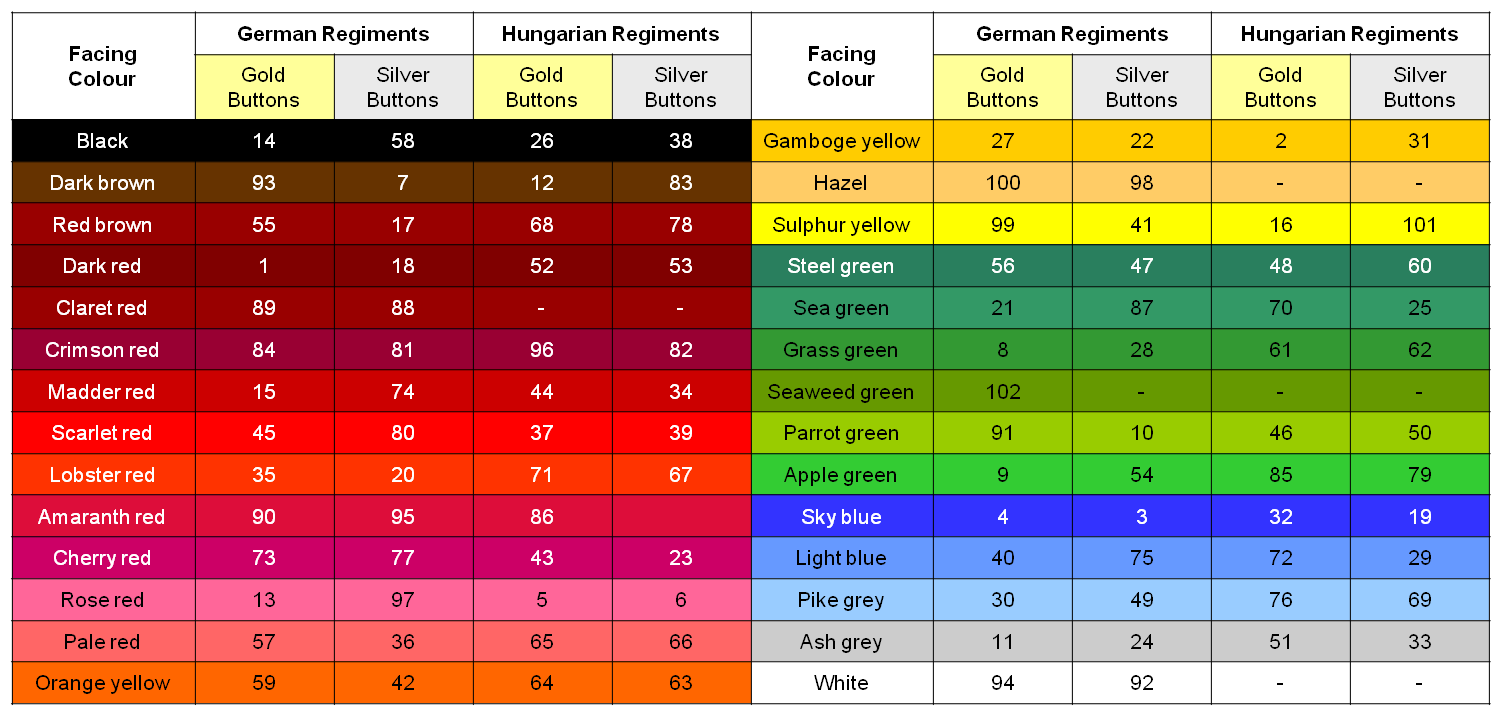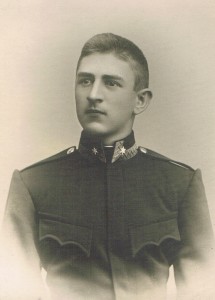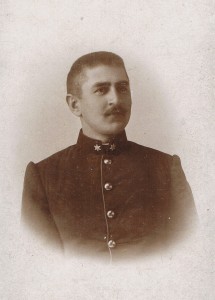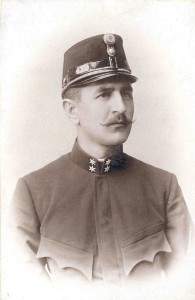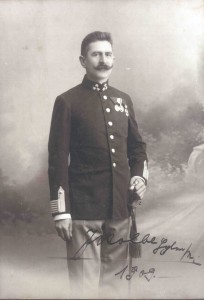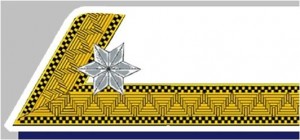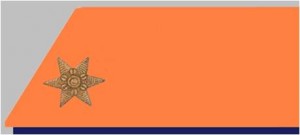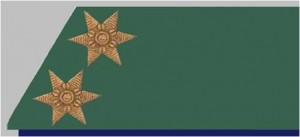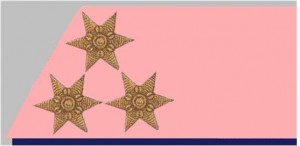On 18 August 1892 Josef Kolbe was assigned to the Frederick Grand Duke of Baden imperial and royal 50th Infantry Regiment, which was raised in 1792 and based in Karlsburg (Hungarian: Gyulafehérvár / Romanian: Alba Iulia) in Transylvania. He would serve in the k.u.k. I.R. 50 throughout his career in the army.
The Austro-Hungarian Army contained 102 infantry regiments, either German or Hungarian. The term German denoted all parts of the empire with the exception of the Kingdom of Hungary, and as such could include personnel belonging to any other of the Empire’s many ethnicities. Individual regiments were identified by a system of facing colours and button colours; in this way no two regiments had the same combination of colours. Josef Kolbe entered the Austro-Hungarian army with the rank of Cadet Warrant Officer. He spent the first two years of his army life in and around Sarajevo, where there was a fortress, before being sent as a newly promoted Second Lieutenant to Transylvania on 28 September 1894. Through his army activities at the garrisons of Fogarasch (Fogaras / Făgăraș), Kronstadt (Brassó / Brașov), Hermannstadt (Nagyszeben / Sibiu) and Karlsburg, he got to know the region well. From 1894 to 1911 he was given the command of a number of companies within the I.R. 50, the responsibility for procurement, stores and weapons and the post of shooting, ski-ing, cycling, swimming and fencing instructor, while excelling in marksmanship and riding.
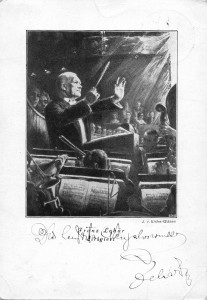
Franz Lehár, 1934
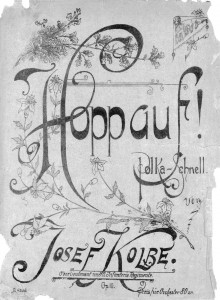
polka musical score, c1898
played by The Firestone Orchestra, Nashville 2000
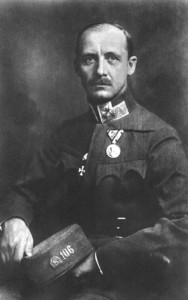
In 1898 Josef Kolbe was promoted to the rank of First Lieutenant. He must have already been acquainted with the Lehár brothers, the sons of the regimental bandmaster Franz Lehár. The younger brother Anton’s early career mirrors that of Josef Kolbe: Infantry Cadet School (albeit the more prestigious Viennese school), from which he graduated in 1893, assignment to the 50th Infantry Regiment, promotion to Second Lieutenant in 1893 and First Lieutenant in 1898. Thereafter he attended the Vienna Military Academy, later taking up various posts as an instructor, and assuming command of the 2nd battalion of the 13th Honvéd-Landsturm Infantry Regiment at the outbreak of the First World War. Josef Kolbe and Anton Lehár’s paths were to cross again towards the end of hostilities (see Aftermath).
The older brother Franz Lehár’s career was to follow a completely different path. He became a famous composer, whose operettas are still widely played today, the best known in the English-speaking world being The Merry Widow. It was probably under Lehár’s influence that Josef Kolbe decided to try his hand at writing music, as he produced a remarkably good polka for full orchestra entitled Hopp auf! The two men were to remain friends for the rest of their lives.
Josef Kolbe was elevated to the rank of Captain in 1908. He was a model soldier, though very likely a perfectionist who neither suffered fools gladly nor tolerated people who did not reach his exacting standards. During the seven months in 1910 that he was away from Transylvania and garrisoned at the fortress on the Hum mountain overlooking Mostar in Herzegovina, he overstepped the limits and used excessive force on one of his men, for which he received the punishment of two weeks’ supervised detention.
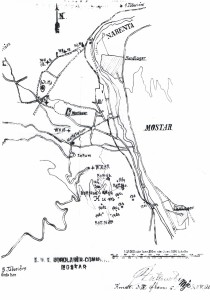 | 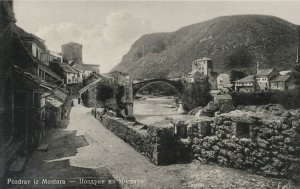 above bridge at Mostar 1890-1900 | 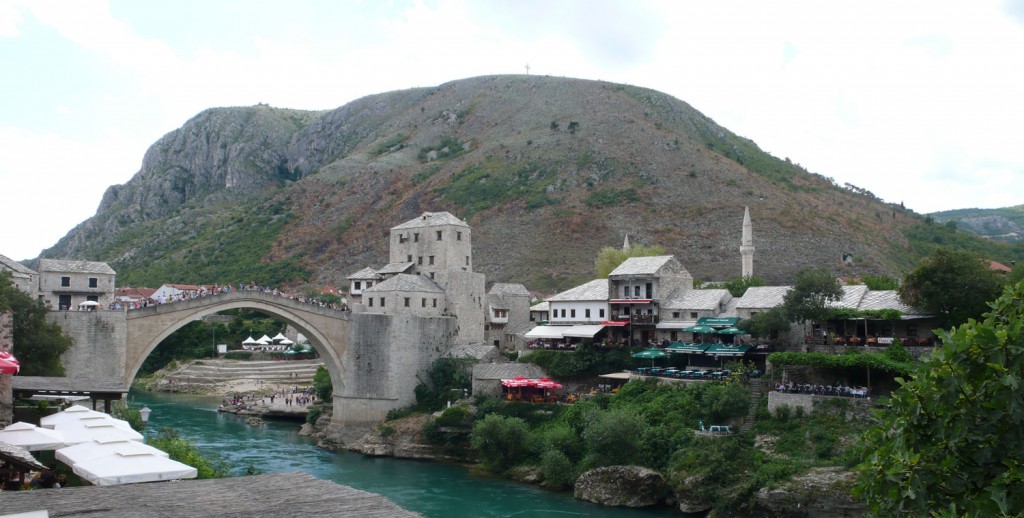 photo: Rosemary Kneipp, 2012 | 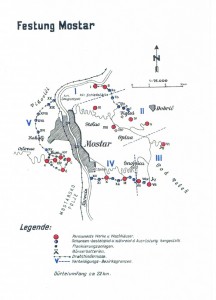 |
It was time for him to accept the calming influence of family life. He probably recognized this himself, as he was married on 21 September 1911. He had been engaged to Emilie Däubel, the daughter of a Fogarasch master linen maker, for about 10 years, but had postponed marriage as it meant leaving his beloved army. The rules in force at the time forbade officers without sufficient means to marry, and without a wealthy family to support him, Josef Kolbe’s army salary did not meet the criteria. So it was probably with great regret that he officially retired from the army and entered civilian life.
Sources:
War Archives, Vienna: http://www.oesta.gv.at/site/6154/default.aspx
Austro-Hungarian Land Forces 1848-1918: http://www.austro-hungarian-army.co.uk
Anton Lehár: http://www.austro-hungarian-army.co.uk/biog/leharant.htm
http://en.wikipedia.org/wiki/Austro-Hungarian_Army

